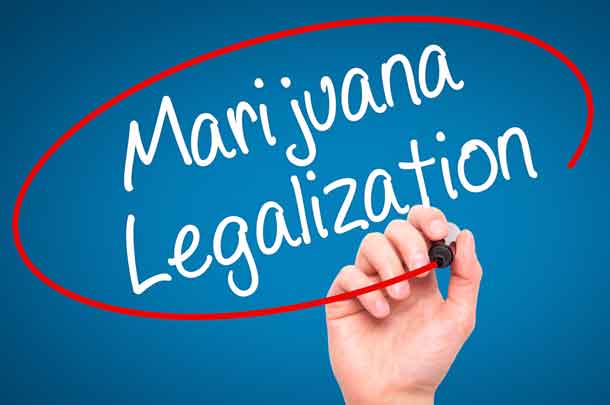 THUNDER BAY – Crimebeat – Should the state fully control the production and sale of drugs? In the United States, Law Enforcement Against Prohibition (LEAP) are campaigning for the decriminalization of marijuana. In Uraguay, the South American country are taking a different approach. The debate there is one of making the government the sole supplier of marijuana.
THUNDER BAY – Crimebeat – Should the state fully control the production and sale of drugs? In the United States, Law Enforcement Against Prohibition (LEAP) are campaigning for the decriminalization of marijuana. In Uraguay, the South American country are taking a different approach. The debate there is one of making the government the sole supplier of marijuana.
The Broad Front which is the ruling coalition, a centre-left has set course for a state monopoly on the production and distribution of marijuana. If this move were to happen, Uruquay would become the first govenment that would produce and distribute marijuana directly to the population.
Criticism of the prohibitionist model, the assessment that the debate on marijuana has been established in the population and the need to regulate the trade and sale of cannabis were points where agreed by the Secretary General of the National Drug (JND), Julio Calzada, and former Deputy Defense Minister Jose Bayardi, former director of the JND Leonardo Costa and member of the advocacy organization Human Rights Institute of Legal and Social Studies of Uruguay (IELSUR), Martin Fernandez.
The table, entitled “Failure of prohibition, war on drugs: towards the construction of a diplomatic policy”, was held on Friday at the headquarters of the PIT-CNT, in the framework of the Conference on Academic Debate on Marijuana organized by National Coordinator for Legalization of Marijuana, also made by Prolegal Proderechos, the Federation of University Students of Uruguay (FEUU), Grow Your Rights and other groups.
“Amid both bolazo, that we lengüen the lock” was the slogan with which the NGO Prolegal Proderechos spread the program of the conference. According to the daily Camilo said Collazo, a member of this group, the event aims to “prioritize” the discussion in a context in which “got to say many things, some of which are interesting and others not so much.”
Calzada opened the table with the historical context of the global prohibitionist model, whose origin was at the decline of the British Empire and the rise of the U.S. as global hegemony, which reflected the logic of prohibition in the Convention Drug Unitarian in 1961.
Calzada detailed several changes to the current Latin American scene, such as declarations of interest in legalizing all drugs. He stressed that the draft submitted by the Uruguayan Executive “was not a leap in the dark”, since it is located within a medical paradigm that “has much experience in Europe” and they point to Latin American governments such as Argentina and Chile. He considered that the project “has made a big bet that the subject leaves the academic debate, parliamentary debate transcends and installed in the kitchen, at the tables of the lunches of all households in the country, and in that sense has been a important initiative. ”
Bayardi, meanwhile, called demarcate drug discussions of the concepts of left and right and cited an article published by the University of the Andes in 2005, attributing the Latin American policies regulating substance that interests ” come from the United States “rather than scientific data collected in each community. The study also stated that policies banning Americans from the early nineteenth century created more problems (violence, strengthening the black market, state corruption) that the consumption of alcohol.
Finally, he said that “define individual policies can be a mistake, but collectively define policies may allow advance hiatuses or gaps in conventions [international] by way of the facts” and that the Union of South American Nations needs to strengthen leadership of South American Council for World Drug Problem.
Costa claimed the right to use, based on Article 10 of the Constitution, and appreciated some “liberal matrix” Drug Act passed during the dictatorship, not considered illegal consumption.
He compared the situation with the most restrictive example of Brazil, whose “Drug Director until recently was military.” He put a question mark on the validity of that Uruguay intends build regional policies and criticized the draft compulsory hospitalization and increased penalties for trafficking of certain substances.
Fernandez, who ended the day coincided with the Coast reviews and said that there are “measures that confuse people” and do not help to have a paradigm shift. I doubt this prohibition dead, because “there are laws and practices” that are part of current that thought, as that Law 17.016 establishes a “reasonable amount” of drugs that can carry for personal use: “In a prosecution one can be processed per 30 grams and be free with 100 other “, he said.
The days of debate also took on Thursday the School of Psychology with two tables, one focused on the approaches to treatment and one in the toxicological profile of marijuana, while on Friday, and the debate about the ban, exposed in a Bureau on deputies legalization Jorge Gandini, Sebastián Sabini, Julio Bango and Veronica Alonso. Federico de los Santos





